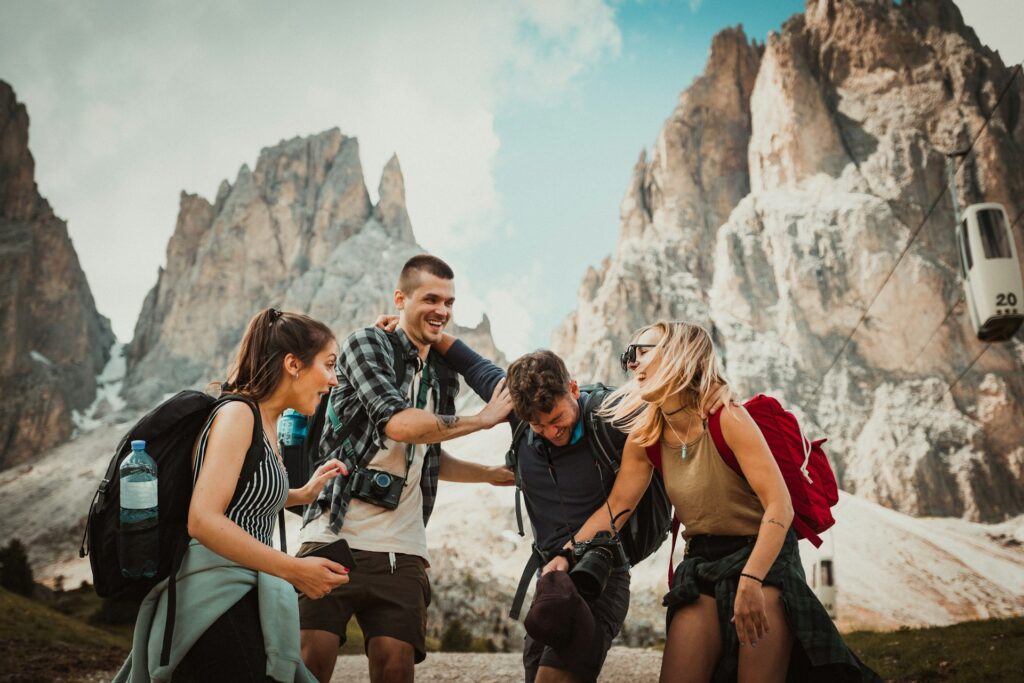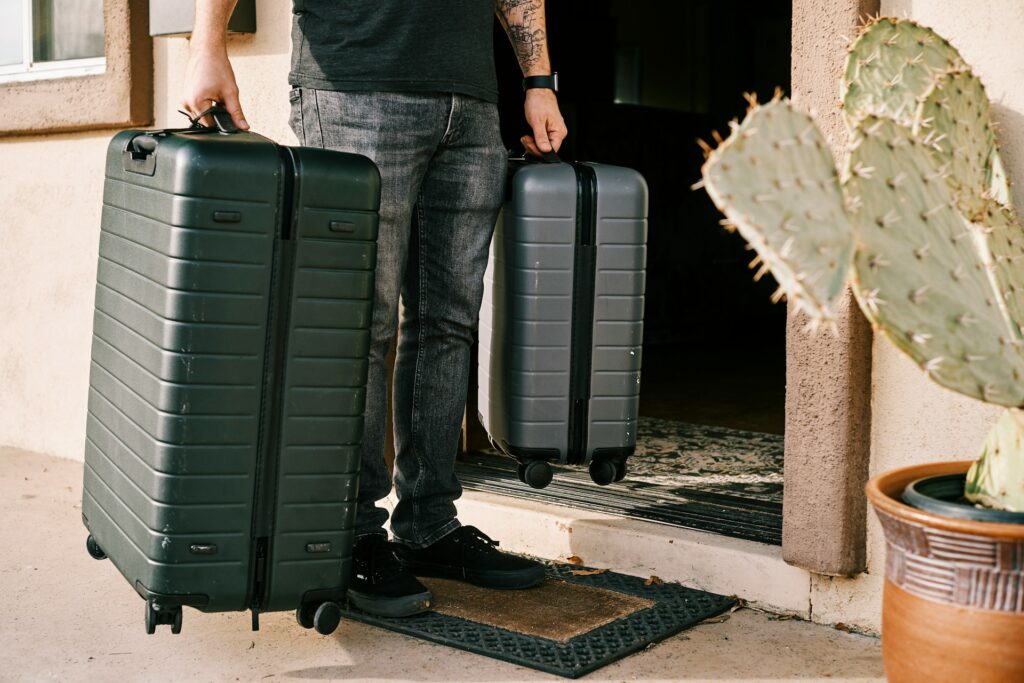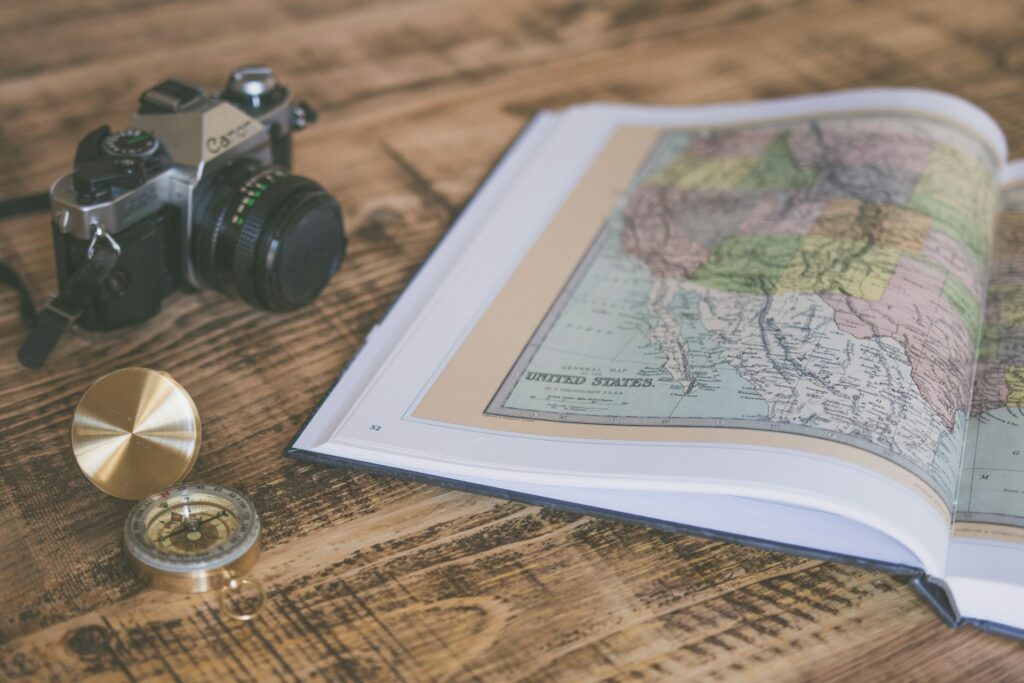
Body + Mind is reader-supported. We may earn an affiliate commission when you buy through some of the links on our site.
Setting off on your first solo adventure is a thrilling experience, offering freedom and the opportunity for discovery. However, solo travel also comes with its unique set of challenges and considerations. Here are 14 essential tips for traveling alone.
Unfortunately not every destination is the best for solo travelers. Research destinations known for their safety and friendliness toward those traveling alone. Look for places with well-developed tourism infrastructure, English proficiency and a welcoming attitude toward tourists.
Here are some of the best destination for solo travelers:
Travel insurance typically covers a range of emergencies including trip cancellations, medical emergencies, lost or stolen belongings and travel delays. As a solo traveler, having insurance can be exceptionally valuable, as there may be no one else to rely on in case of emergencies. It ensures access to medical care in foreign countries and reimburses expenses due to trip disruptions. Travel insurance can give you peace of mind knowing that you’re prepared for whatever challenges may arise along the way.
Checking reviews before booking accommodation is an essential step in ensuring a safe and enjoyable trip. Reviews offer valuable insights from fellow travelers who have first-hand experience staying at the property, providing information about cleanliness, safety, location and overall atmosphere.
As someone traveling alone, reviews can help gauge whether the accommodation is suitable for independent travelers, with factors like security, social opportunities and solo-friendly amenities being of utmost importance.
Even if a hotel isn’t out of your price range, there are plenty of private hostels you can stay at. Aprproximately 16% of all travelers are traveling alone, meaning there are many people looking to connect with others on their trip. Staying at a hostel is a fantastic way for solo travelers to meet people and forge new friendships while exploring the world.
Hostels typically have a communal atmosphere, with shared rooms and common areas to encourage interaction among guests. Whether you’re swapping travel stories over breakfast or joining a group excursion, there’s ample opportunities to connect with fellow travelers from around the globe.

Remember that you’ll be the one lugging around your belongings every step of the way. Every extra item adds weight and bulk to your luggage, making it an inconvenience to carry around airports, train stations and busy city streets. Take a more minimalist approach and pack only the essentials. This way you can enjoy more freedom and have some extra space to bring back souvenirs.
Something as simple as carrying a pen with you can save you plenty of time and hassle, especially when it comes to filling out documents on the go. Whether you’re completing immigration forms, signing receipts or jotting down important information, having a pen readily available ensures you’re prepared for any paperwork that may arise during your journey.
Pack a compact and lightweight first aid kit with essential medical supplies for minor injuries. Keep your kit well-stocked with items like:
While you hope to avoid injuries, having a first aid kit on hand offers peace of mind and allows you to address any minor health concerns without having to find a pharmacy in a foreign country.
This is one of the most simple tips for traveling alone, yet still forget it. In case of language barriers or getting lost, having this information readily available can improve communication with locals or taxi drivers, ensuring you make it back in one piece. Whether it’s a business card from the hotel or a handwritten note with essential details, keeping it in your wallet or pocket provides a reliable lifeline, especially when exploring remote areas where GPS signals may be unreliable.

While credit cards and digital payment methods are convenient, they’re not always accepted or accessible, especially in remote areas or during technical glitches. Stash at least $100 in cash in a hidden pocket or money belt to ensure immediate access to funds for emergencies like transport, accommodation or medical expenses. Cash is also helpful in the event of lots or stolen cards.
Visiting the same restaurants as the locals is the best way to fully immerse yourself in the culture. Venture off the beaten path to dine at local eateries, street food stalls or neighborhood cafes is a fantastic way to sample traditional dishes and connect with the destination and its people. These places also tend to be more budget-friendly than tourist hotspots, giving you more bang for your buck.
Privacy is one of the most crucial tips for traveling alone. Don’t be tempted to post your location on your Instagram story or any other social media platform. Broadcasting your exact whereabouts to the public can compromise your safety and invite unwanted attention. Instead, share your experiences and photos after you’ve left a particular location, protecting your privacy and minimizing the risk of theft or other security concerns.
As a solo traveler it’s essential to be aware of your surroundings to stay safe and navigate unfamiliar surroundings with confidence. Whether you’re exploring bustling city streets or remote areas, maintaining situational awareness allows you to anticipate potential risks and respond effectively to changing circumstances.
Pay attention to your surroundings, taking note of landmarks, exits and any potential hazards. Trust your instincts and stay vigilant, especially in crowded or unfamiliar areas. Always keep valuables secure and avoiding distractions like your phone or headphones.

Giving someone close to you a copy of your travel details is crucial in case of emergencies. Share your itinerary, including flight details, accommodation reservations and any planned activities or excursions, along with contact information and local emergency services.
Also consider providing copies of your passport, travel insurance policy and any relevant medical information. This way, in the event of unforeseen circumstances or if you become unreachable, your loved one can assist authorities in locating you and coordinating assistance if needed, offering peace of mind for both you and your family and friends back home.
Amidst the excitement and exploration, it’s important to take time to relax too. Whether it’s lounging in a cozy cafe or strolling through a serene park, prioritizing downtime allows you to recharge physically and mentally. It’s also an excellent way to slow down and truly soak in your surroundings.
Traveling alone is an enriching and empowering experience, but it requires a bit more planning and consideration. By following these essential tips for traveling alone, you can embrace the freedom of solo travel while staying safe, connected and immersed in unforgettable experiences.
Your email address will only be used to send you our newsletter, and at any time you may unsubscribe. For more information, see our Privacy Policy.